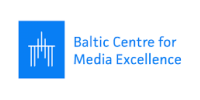Researches on digital democracy and citizenship: cross-sectoral cooperation as a way to address emerging challenges
On 3-4 September, BECID junior researcher Rimgailė Kasparaitė, PhD student in Department of Public Communication at VMU, took part in the “Democracy & Digital Citizenship” conference at the University of Southern Denmark, where she presented her dissertation’s conceptualization and theoretical analysis of the sources, which has served as a basis for further empirical research, and also represented the DIGIRES and BECID projects as a successful example of cooperation between different stakeholders in the Baltics, as well as discussed the possibilities of future collaborations with researchers at other European Universities.
Contributions and perspectives from different disciplines
As digital technologies continue to advance, the research conference brought together scholars from different disciplines with a methodological, conceptual and/or practical interest in digital democracy and citizenship to answer the question: what are the main research directions in digital democracy and citizenship for the next five years?
“Fundamental questions of democracy and citizenship are becoming more and more inseparable from the debate on the development of digital technologies. In the academic disciplines of the humanities, social sciences and the exact sciences (information technology), the question of how technological innovations influence political processes and what makes them effective or disruptive is increasingly becoming a key focus for public interest groups, civil society organisations and public authorities”, says R. Kasparaitė.
She says that studying digital democracy or citizens’ behaviour and decisions can be approached from different perspectives, but a comprehensive picture requires the ability to use a wide range of data, which is why it requires collaboration between different disciplines, which can complement each other to produce multidimensional results.
“It is very important for scholars from different scientific fields and disciplines, who rarely meet in interdisciplinary conferences, although they have common scientific interests, to share their knowledge and insights on the complex and changing links between technological developments, institutional and everyday political practices, and democratic systems of governance,” says R. Kasparaitė.
From the basics of digital citizenship to the power of global platforms
The conference featured scholarly discussions on topics ranging from the theoretical basics of digital democracy and citizenship, digital political communication, digital data and vulnerable groups of society, media in the digital space, to the implications of artificial intelligence. Meanwhile, plenary presentations by leading scholars in the field focused on digital networks and the power of global platforms.
“Digital platforms are gaining the power to define how content distribution networks (which we ourselves make work by providing our personal data in certain ways) operate. At the same time, we are aware that digital platforms are ‘broken’ (full of manipulative information content), but they are not going away. The question is how to fix them? Especially when it comes to informed decision-making and malicious content on the internet, we can speculate that journalists should become mediators in the digital space, as they have the power to provide objective information, criticise, evaluate and change the current situation. However, in the digital space, there are too few journalists to transform the polarising content that is circulating into an ethical dialogue. Perhaps we should consider using artificial intelligence as a mediator?”, the junior researcher raises the question.
Untapped potential for cross-sectoral cooperation
As the landscape of digital democracy is disrupted by a wide range of challenges, in particular the spread of disinformation and the erosion of trust in democratic institutions, the question arises as to what are the most effective solutions to these problems?
“Solutions to complex problems such as disinformation (due to their dynamic and complex nature, involving multi-layered and multi-sectoral challenges) cannot be confined to the boundaries of a single organisation. This means that the fragmented work and efforts of different institutions are not enough to solve these problems. Traditional crisis management approaches (risk mitigation) are not effective enough when it comes to complex social or technological challenges”, says Kasparaitė.
However, while cross-sectoral collaboration is a widely discussed model in both political/social debates and research, its potential in the digital field and its ability to foster a more ethical digital environment has not yet been sufficiently explored and evaluated, according to the junior researcher.
“Multi-stakeholder collaboration is a sound strategy to address the challenges of digital democracy. Therefore, my theoretical research aims to conceptualise the role of multi-stakeholder partnerships in shaping communication policy, strengthening democratic participation and communication values. By synthesising existing knowledge and examining practical applications, I show how partnerships between different stakeholders – government, media, civil society, academia, digital platforms – can work together to strengthen digital democracy and reduce the risk of misinformation”, says Kasparaitė.
The “Democracy & Digital Citizenship” conference is an initiative of researchers from four Danish universities (the Digital Democracy Centre (DDC) at the University of Southern Denmark, the Centre for Digital Citizenship (CDC) at the University of Roskilde, the Centre for Digital Citizenship (SHAPE), at Aarhus University, and the Social Data Science Centre (SODAS) at the University of Copenhagen), which is aimed at fostering greater collaboration amongst them, as well as amongst researchers from different European universities.







